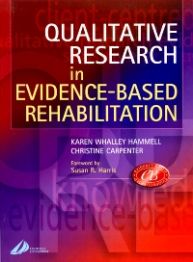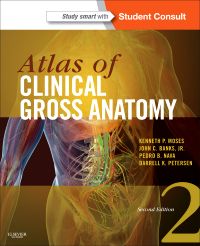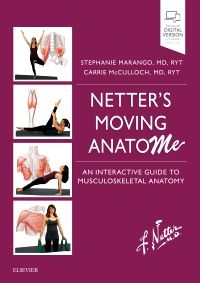This book provides an inexpensive and accessible discussion of qualitative research and the potential role for qualitative research in enhancing both the theoretical bases of occupational and physical therapy and the knowledge bases that inform evidence-based practice. It is a comprehensive text for students in the rehabilitation disciplines with examples drawn from research undertaken by physical therapists and occupational therapists. The book provides a resource for graduate students, researchers new to the field and to clinicians who seek a greater understanding of qualitative research and its use within the professions of occupational and physical therapy.Coverage and Orientation Occupational and physical therapists are being urged to adhere to "evidence-based practice" because clients and payers want services that are based on evidence that demonstrates their effectiveness. Qualitative Research in Rehabilitation : informing evidence-based practice will be a timely, practical and practice-related exploration of qualitative research, client-centred practice and evidence-based practice as these inter-relate and as they pertain to occupational and physical therapy.
Key Features
- The material addresses a subject of increasing concern and relevance to therapists.
- Thorough explanations demonstrate the relevance of qualitative research for evidence-based practice.
- The text explores issues specific to the field of rehabilitation and focusses specifically on those important to OT and PT.
- Information links theory, research and practice in an understandable way.
- Resource effectively uses boxes and tables to highlight key packets of information
- Illustrations of "real" research and practice examples aid the reader in applying their new-found knowledge to real-life issues.
- The book is written in a readable style which makes the book accessible for students and non-academically minded practitioners.
Author Information
By Karen Whalley Hammell, PhD, MSc, OT(C), DipCOT, Researcher and Writer, Saskatchewan, Canada
1. The contribution of qualitative research to evidence-based practice. 2. Using qualitative evidence to inform theories of occupation. 3. Exploring leisure meanings that inform client-centred practice. 4. Building knowledge through participatory research. 5. Using qualitative focus groups to evaluate health programmes and service delivery. 6. Ensuring a client perspective in evidence based rehabilitation. 7. Integrating grounded theory and action research to develop guidelines for sensitive practice with childhood sexual abuse survivors. 8. How qualitative research evidence can inform and challenge occupational therapy practice. 9. Using a multiple case study research design to develop an understanding of clinical expertise in physical therapy. 10. Exploring views and perceptions of evidence-based practice influencing practice. 11. Using qualitative evidence as a basis for evidence-based practice














